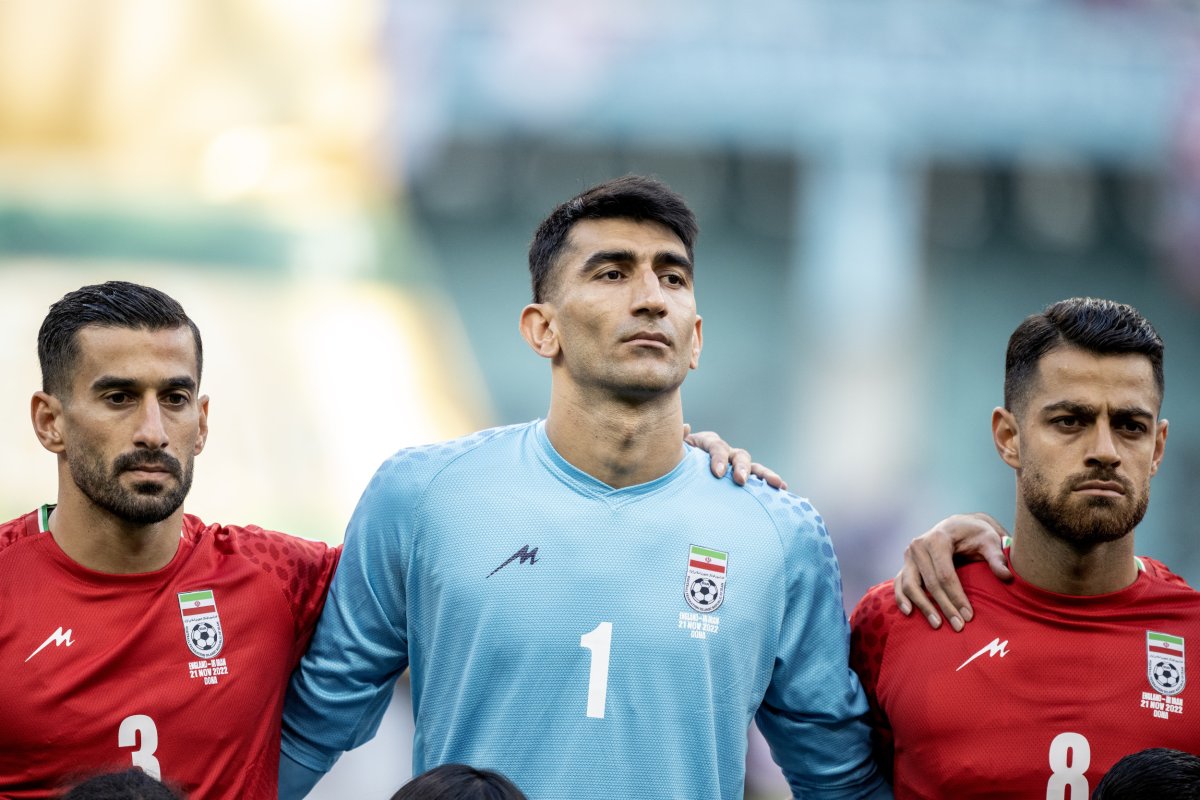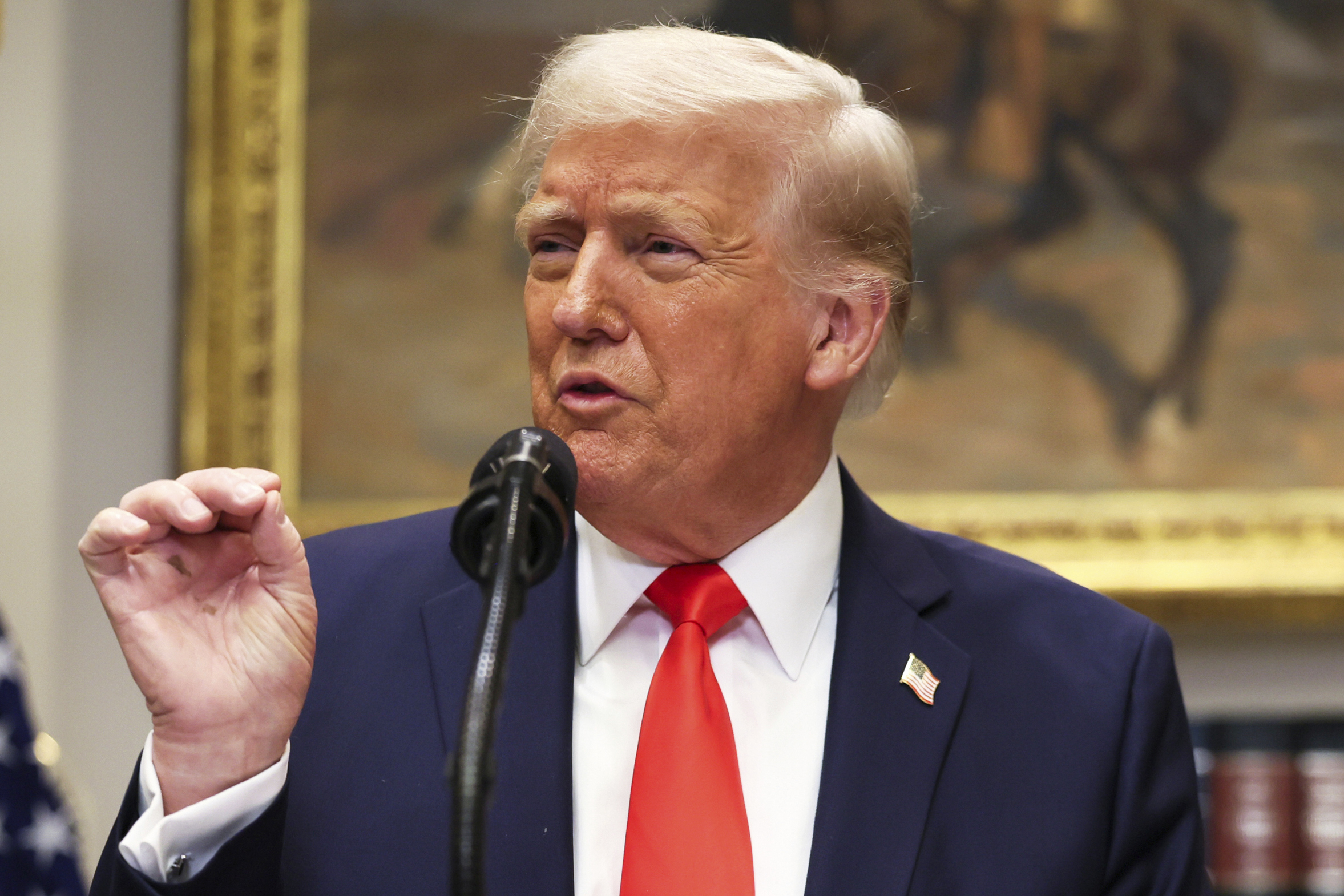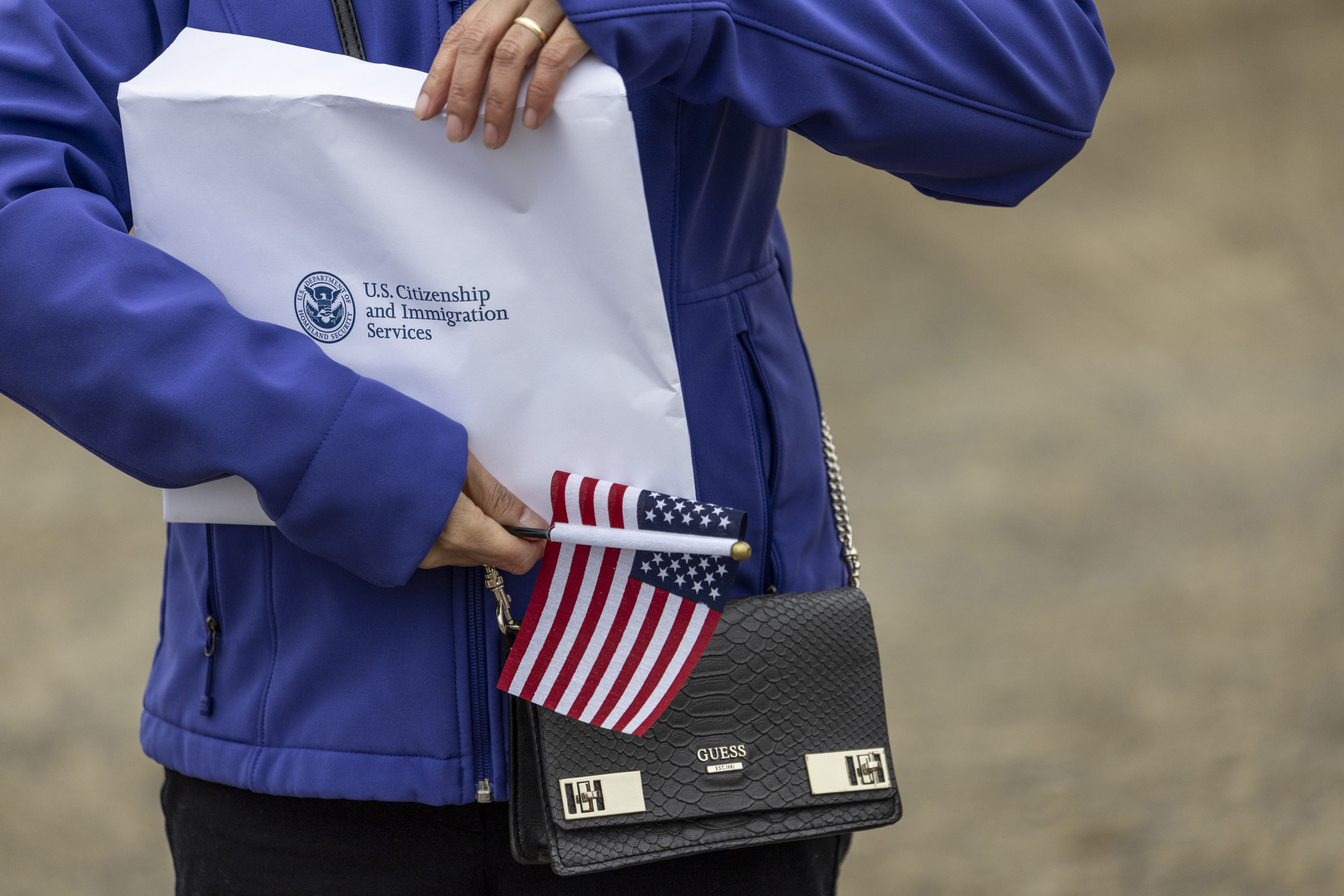Members of the Iranian soccer team who stood silent during the playing of their country's national anthem prior to their FIFA World Cup match against England could face consequences back home.
As the eyes of the world focused on the players' reaction, they stood in solidarity with Iranians who are now in their third month of protests originally sparked by the death of 22-year-old Kurdish Mahsa Amini while in government custody for "improper" wearing of a hijab in the Iranian capital of Tehran that broke national "morality" laws.
A tweet from Good Morning Britain correspondent Jonathan Swain shows Iranian fans booing their own national anthem. Iranians on social media have pointed out that the anthem is not Iran's but actually that of the Islamic Republic, both of which are clearly differentiated.
Protest by Iranian fans - booing their own national anthem ahead of match against England. #Qatar2022 #iran pic.twitter.com/3YN5V2y7BO
— Jonathan Swain (@SwainITV) November 21, 2022
The New York Times tweeted that Iranian fans also brought signs inside the Khalifa International Stadium in Doha in Qatar that read "Freedom for Iran" and "Woman, Life, Freedom." There were also fans outside the stadium who carried the flag of Persia and were not let inside to view the match.
Iran, one of the World Cup participants with the lowest odds of winning the global tournament, ultimately lost their Group B matchup with England, 6-2.
One video shared on Twitter by Iran International shows Iranians in Tehran's Shahran district cheering their team losing, even chanting "death to dictator."
Reports prior to the match stated that Iranian authorities requested that the native protests not be mentioned throughout the duration of the World Cup, which concludes December 18.

Other reports alleged that Iranian officials considered carrying out a terror attack to disrupt the worldwide games, but were dissuaded over how the host country might respond.
David E. Guinn, a University of Albany research professor of international law and human rights, told Newsweek that not only the Iranian players but their families "could face significant consequences including detention and/or arrest" due to the ongoing protests coupled with the country's tense economic conditions.
"The Iranian regime has clearly demonstrated its determination and ruthlessness in seeking to quell that unrest, particularly in public settings," Guinn said. "While the public standing of the players might shield them for a time, particularly while they are competing in the World Cup, that standing will also make them of greater concern to the regime. They don't want prominent individuals stepping forward to feed the flames."
Those in the stands, many of whom have had their faces shown worldwide through various forms of media, may also be at peril.
"I have no doubt that the Iranian security services Revolutionary Guard will attempt to identify them—particularly those who were carrying signs—and dig into their backgrounds looking for anything to justify a detention or arrest," Guinn said. "While they may be lesser targets because they are not well known, the security services will at a minimum want to place them under observation when they return.
"The fact that this occurred out of the country will not serve as a deterrent," he added, referencing other reports that indicate that Iran has repeatedly sought to enforce its will on expats as well as the people out on the street.
Scott Sullivan, a professor of public international law and human rights at Louisiana State University, told Newsweek that Iran's history shows what its highest officials could pursue in reaction to situations such as these.
"The Iranian regime has demonstrated its willingness to mete out harsh punishments for those seeking to draw attention to its human rights violations, so it is easy to imagine the players being punished," Sullivan said. "The popularity of the players may insulate them from direct retribution but, of course, it's that very popularity that makes them a danger the regime is unlikely to ignore."
About the writer
Nick Mordowanec is a Newsweek investigative reporter based in Michigan. His focus includes U.S. and international politics and policies, immigration, ... Read more



